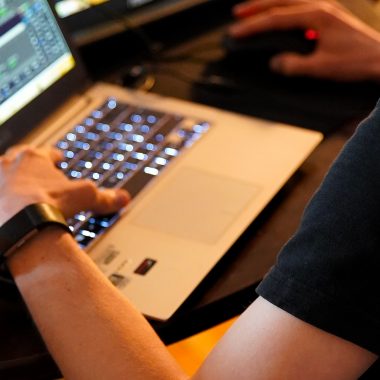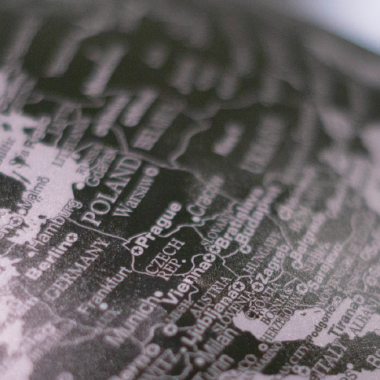The 77th edition of the Cannes Film Festival comes to a close in a dual light: that of the spotlight celebrating world cinema and the cruder light of a new wave of #MeToo. Cannes, which often reflects the tensions of its time, is no exception this year to a media crisis that prompts both vigilance and reflection.
The #MeToo in the world of cinema, an ongoing battle
The #MeToo shockwave, born of the revelations against Harvey Weinstein in 2017, continues to shake the film industry. In recent years, accusations of sexual assault and harassment have been piling up – Polanski, Depardieu, Sarde, and other industry heavyweights have been singled out one by one. People seem to be speaking out about abusive behaviour that has long been ignored or played down.
Last February, a new wave of allegations surfaced when Judith Godrèche filed two complaints against Benoît Jacquot and Jacques Daillon for sexual assault of a minor. The French actress and screenwriter quickly became a major voice in the movement, pushing for substantial legislative changes.
Alongside around a hundred other celebrities, she took part in a forum calling for a comprehensive law on sexist and sexual violence, to strengthen financial and human support for victims. She is also behind a committee of enquiry launched in early May at the French National Assembly into ‘violence committed in the cinema, audiovisual, live performance, fashion and advertising sectors’.

A 77th edition under tension
At Cannes, these demands are the order of the day. Camille Cottin, mistress of ceremonies for this 77th edition, asserted from the opening that the era of ‘all-powerful gentlemen’ is over. Judith Godrèche backed up the message with her short film ‘Moi aussi’, inspired by real-life testimonies.
Judith Godrèche et son film « Moi aussi », « Sept samouraïs »… Ce qu’il fallait retenir du Festival de Cannes
➡️ https://t.co/SwK94CNSEK pic.twitter.com/lzepulIfdA
— L’Humanité (@humanite_fr) May 16, 2024
But this year, it was a persistent rumour that crystallised tensions. On 2 May, the @DestinationCiné account announced on X that an explosive investigation by Mediapart was about to reveal reprehensible behaviour by several major figures in French cinema.
The story gained momentum when Zoe Sagan, an anonymous profile regularly targeted by accusations of conspiracy, relayed the rumour. As the days passed, the account with hundreds of thousands of followers fanned curiosity by posting several tweets hinting at imminent revelations.
The teasing culminated in a list of ten names of French actors, directors and producers. Although unverified, the list is shared widely on the platform. The tweet has so far recorded 7 million impressions, 3K likes, 1K reposts, and 558 comments.
Despite a formal denial from Mediapart published on 13 May, which denounced the rumour as ‘media manipulation’ and criticised the use of his name to legitimise unfounded allegations, it was too late: many media outlets had already reported the affair and the list had become a central point of discussion.
On X, the May period counts more than 20K messages in connection with a new #MeToo wave and the existence of an alleged list of abusers.

Curve of #MeToo mentions linked to Cannes in May on X
The strike force of fake news
How can such an escalation be explained? While the phenomenon of fake news is nothing new, the context of Cannes this year provides fertile ground for a major media crisis.
Political scientist François-Bernard Huyghe has said that digital technology has ‘democratised disinformation’, enabling anyone to spread misleading or erroneous information on a massive scale. For all players, this means an increased risk of exposure to rumours or defamation campaigns that can seriously damage their image and reputation.

‘Rumour is a virus’
These are the words Raphaël Quenard uses in an interview for Clique. The actor, who has been targeted by the allegations, expresses his frustration at a culture of scandal that he believes is detrimental to the real issues at stake in the #MeToo fight. He calls for the ‘root of the virus’ to be tackled, so as to maintain the objective of the fight and not be distracted by a form of sensationalism.
“La rumeur est un virus.”
Raphaël Quenard face à la rumeur #MeToo. pic.twitter.com/PWJhjyswxp
— CLIQUE (@cliquetv) May 14, 2024
Interviewed on Brut, Judith Godrèche also reiterates the need not to overshadow serious calls for action and support for victims. She argues that rumour does a disservice to the real fight, by ‘making victims look like crows’.
The blacklist that circulated during the Cannes Film Festival is a textbook case of disinformation among many others, reminding us of the vulnerability of information in the digital age, in the face of uncontrolled or deliberately manipulated discourse. Vigilance, responsibility and fact-checking remain our best tools for dealing with this type of crisis.
By Chiara Guani









